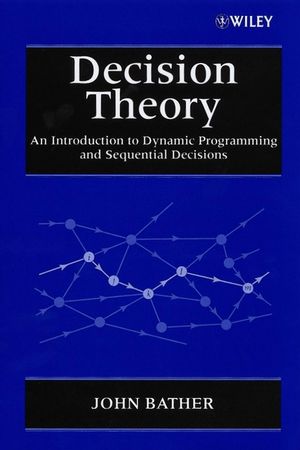Decision Theory: An Introduction to Dynamic Programming and Sequential DecisionsISBN: 978-0-471-97649-3
Paperback
220 pages
July 2000
 This is a Print-on-Demand title. It will be printed specifically to fill your order. Please allow an additional 10-15 days delivery time. The book is not returnable.
Other Available Formats: Hardcover
|
||||||
Decision Theory An Introduction to Dynamic Programming and Sequential Decisions John Bather University of Sussex, UK Mathematical induction, and its use in solving optimization problems, is a topic of great interest with many applications. It enables us to study multistage decision problems by proceeding backwards in time, using a method called dynamic programming. All the techniques needed to solve the various problems are explained, and the author's fluent style will leave the reader with an avid interest in the subject.
* Tailored to the needs of students of optimization and decision theory
* Written in a lucid style with numerous examples and applications
* Coverage of deterministic models: maximizing utilities, directed networks, shortest paths, critical path analysis, scheduling and convexity
* Coverage of stochastic models: stochastic dynamic programming, optimal stopping problems and other special topics
* Coverage of advanced topics: Markov decision processes, minimizing expected costs, policy improvements and problems with unknown statistical parameters
* Contains exercises at the end of each chapter, with hints in an appendix
Aimed primarily at students of mathematics and statistics, the lucid text will also appeal to engineering and science students and those working in the areas of optimization and operations research.
* Tailored to the needs of students of optimization and decision theory
* Written in a lucid style with numerous examples and applications
* Coverage of deterministic models: maximizing utilities, directed networks, shortest paths, critical path analysis, scheduling and convexity
* Coverage of stochastic models: stochastic dynamic programming, optimal stopping problems and other special topics
* Coverage of advanced topics: Markov decision processes, minimizing expected costs, policy improvements and problems with unknown statistical parameters
* Contains exercises at the end of each chapter, with hints in an appendix
Aimed primarily at students of mathematics and statistics, the lucid text will also appeal to engineering and science students and those working in the areas of optimization and operations research.



